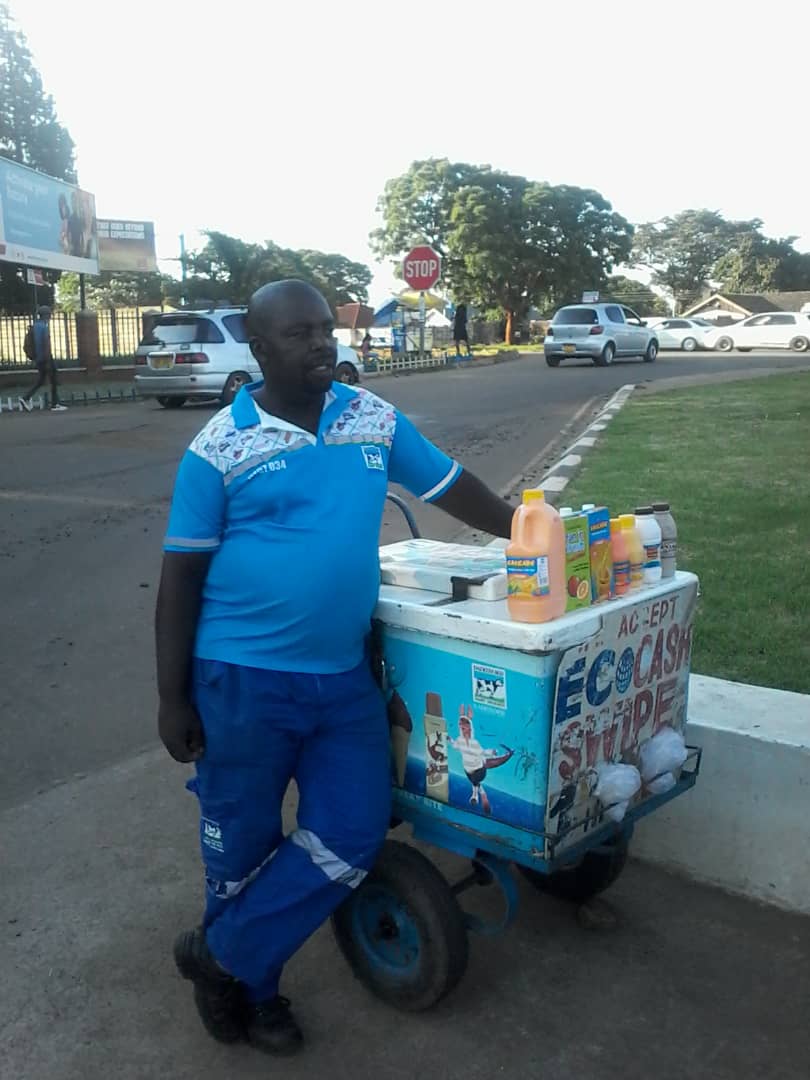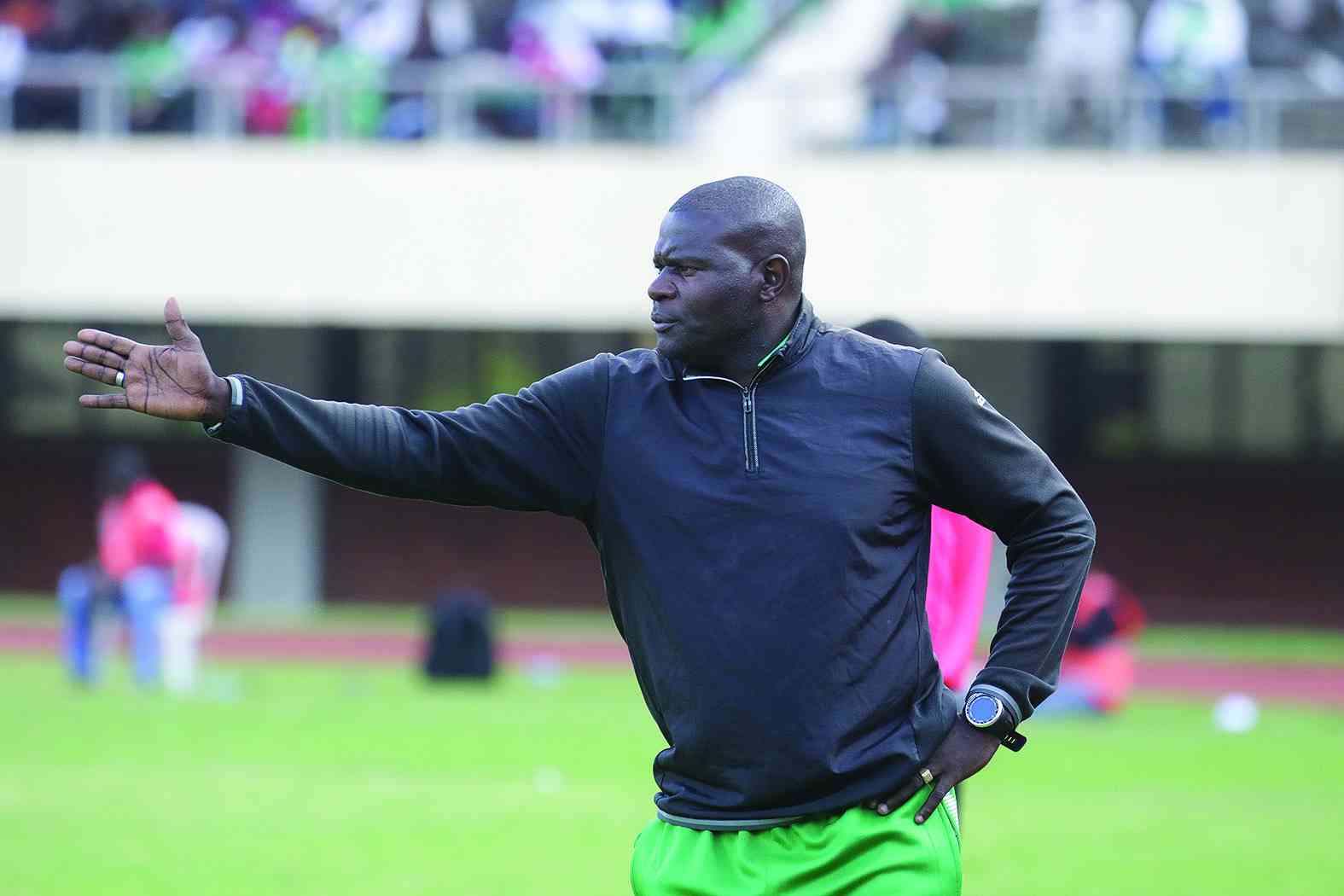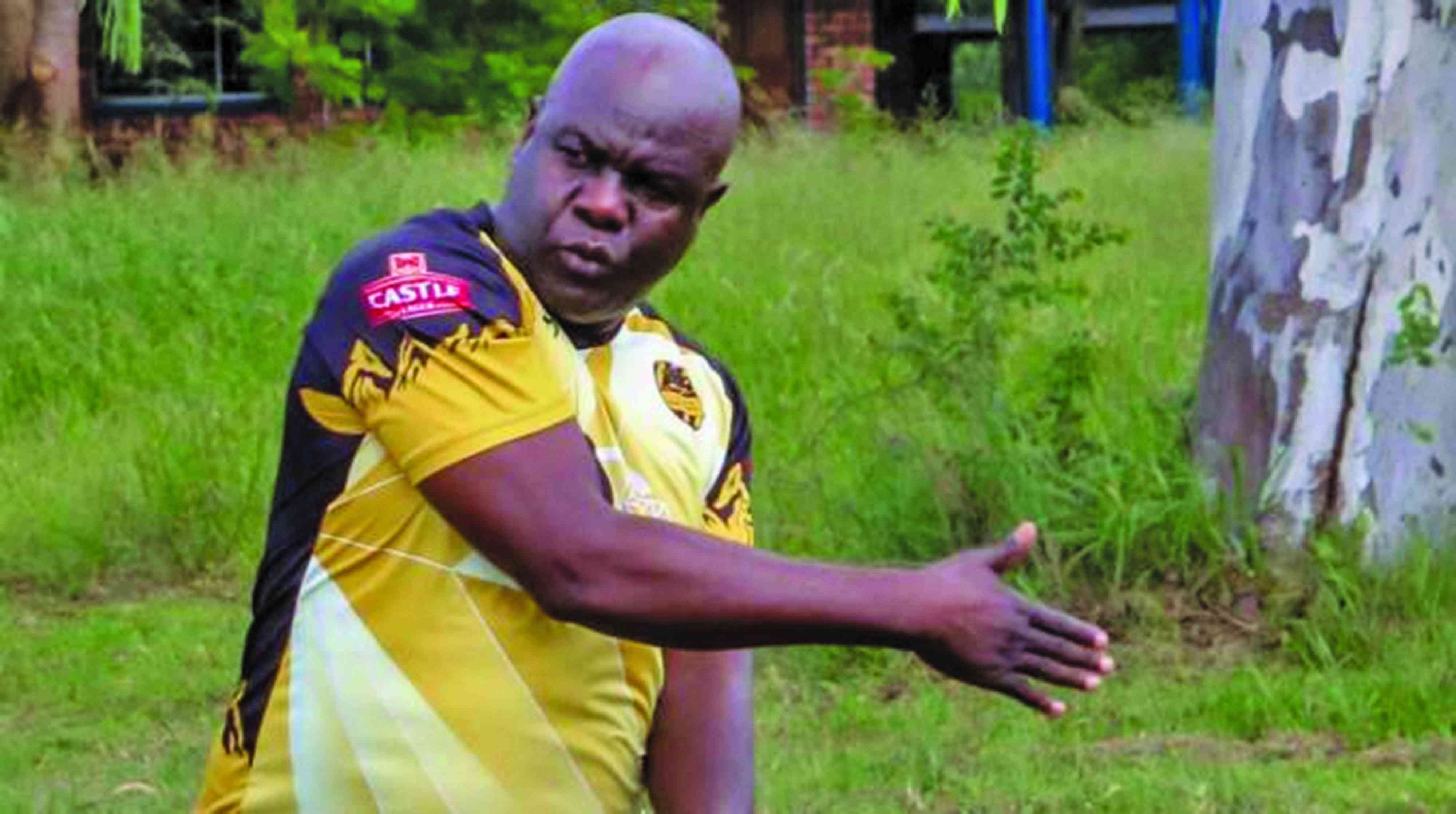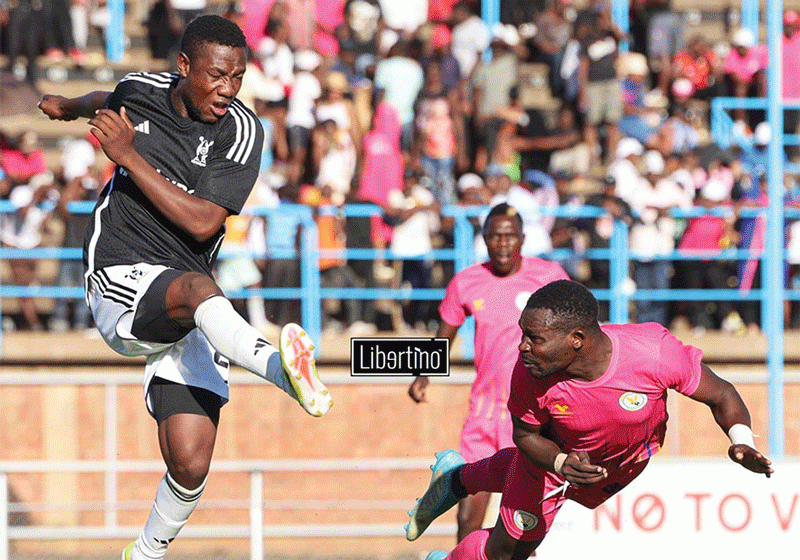
BY HENRY MHARA GLOBALLY, sport and football in particular is a multi-billion-dollar industry, from which even the smallest nations have benefitted.
However, the outbreak of the COVID-19 pandemic has brought the usually rolling cash to a screeching halt.
From football royalty like FC Barcelona in the Spanish archipelago of Catalunya to Innocent Benza’s “part-timers” Herentals FC in Harare, the effects of Coronavirus have been devastating.

While the struggles of footballers have been well documented, the world is oblivious to the suffering of the global game’s beneficiaries in downstream industries, not the least of who are vendors.
They have been forgotten.
The important role they play in providing snacks for millions who go through the turnstiles on match-day in searing heat, all packed away in the dark corners of conversations to bring back capacity crowds to stadiums.

Terence Gurajena (48), a regular across Harare’s football stadiums, has made a living out of selling ice cream at different stadia across Zimbabwe’s capital.
His knowledge of players and supporters runs so deep; he is a fountain literally overflowing.
- Chamisa under fire over US$120K donation
- Mavhunga puts DeMbare into Chibuku quarterfinals
- Pension funds bet on Cabora Bassa oilfields
- Councils defy govt fire tender directive
Keep Reading
His eyes lit up when he talks about football, but then immediately dim as he remembers how his family has suffered in the last two years as his income dwindled to less than a trickle.
But Gurajena cannot afford to sit and feel sorry for himself.
In Harare’s debilitating summer heat, with stunning dexterity, drenched in sweat, he navigates the traffic towards a ramshackle vehicle that has pulled over across the road.

The driver hands him a US$1 bill and after a brief discussion, he runs back to his ice cream pushcart and collects a wafer cone ice cream and a bottle of water, which he hands over.
As he was about to settle down to start this interview, another car pulled over, he makes another sale. But he doesn’t make as much anymore. It has been a devastating blow to his dignity and self-esteem.
“This is my new station since the government relaxed the Covid-19 restrictions. From here, I get enough money to afford the basics for my three children. It can’t be compared with what I get from selling my wares in the stadium,” he says
“Since things are starting to open up, I’m looking forward to going back to the stadium full time. That makes SRC (Sports and Recreation Commission)’s decision to suspend ZIFA quite disturbing to people like us. It could lead to a FIFA ban, just like how CAF has also banned the National Sports Stadium. It is as if the SRC is a twin devil to COVID-19. I was looking forward to the next Afcon home qualifiers and the Caf Champions League matches next year. These are lucrative days for some of us. Taken away by the hand of people whose food is guaranteed at the table.”
Life has been tough for Gurajena whose family survives on the money he earns from selling ice cream, water and cold beverages on match days.

Gurajena, who used to make at least US$250 on a good day selling wares at the Stadium before the Covid-19, now earns less than 10 percent of that incomeHere, at corner Samora Machel Avenue and Hampden Street in the western fringes of Harare Show Grounds, ironically along the road to the iconic National Sports Stadium, Gurajena now earns less than 10 percent compared to his pre-pandemic income.
“The banning of sporting activities by the government did not affect just the sportspersons as many people think. A number of stakeholders including us the vendors were affected in a very bad way, maybe more than the athletes themselves.
“I used to get my biggest sales from soccer matches, so when Covid-19 came everything came crashing down. I had to start from zero. It (suspension of sporting activities) affected me big time because I earn a living from selling. It took me a very long time to adjust to the new reality because for me, football put food on the table,” said Gurajena.


To survive during the lockdown, Gurajena turned to friends for money and food donations.
“I was in the process of building my house which is at the window level but when the lockdown came, everything stopped. I don’t know if I am going to be able to finish it. I have lost hope,” he said.
His wife is a cross border trader, who imports a mix of wares, from groceries to clothes for resell, supplementing her husband’s meagre income.
“The lockdown also affected her because the travel restrictions meant she could not go and buy her stuff. It affected both I and my wife, so you can imagine what we went through as a family. It was very difficult for us, and more so for the kids. You know with young children they really don’t understand what is happening and they still expected me to bring home goodies like I used to do. But then things were really tough. We couldn’t even afford the basics. We had to sit them down and explain to them the situation. It took time for them to understand, but they eventually did. They had to adjust.”
“My extended family was also affected. I take care of my mother, and my grandmother in the rural area. I couldn’t afford to buy them food, let alone their medication. They survived by the Grace of God.”
“If there is one thing that last year’s Covid-19 lockdown taught me, it is to invest in a small business no matter how small your income. You can start a backyard chicken farming business. The returns are small, but they can come handy one day.”
The 2020 domestic football season failed to take off after the government banned all sporting activities as a measure to curb the spread of the Covid-19.
He revealed some of his stall vendor colleagues who were forced to switch trades so they could provide for their families.
Samuel Wadzai, the executive director of the Vendors Initiative for Social and Economic Transformation, said the national lockdown has affected more than 2 million vendors, while United Nations World Food Programme, in a recent report notes “a sharp decline in the standard of living” among the urban poor, with hunger increasing and leaving 2.4 million people struggling to meet basic needs.
“I have friends in this business who suffered depression and never recovered. Some are now drug addicts. It’s sad. Some retreated to their rural areas, and others started new projects like chicken farming,” Gurajena said.
On a good day, Gurajena says he used to make between US$250 and US$300. A princely sum when compared to what most soccer players in the local league earn monthly.
According to the Footballers Union of Zimbabwe, which pushes for better working conditions, footballers’ wages averages US$150 a month.
“During the big games, especially the Harare derby when Caps United play Dynamos, I would make sales that could sustain my family for three weeks to a month. That is how good this business can be. Sometimes I could sell around 1000 to 1500 units.”
But many a times, Gurajena says vendors make huge losses due to ‘exorbitant’ fees charged for access into the stadium.
They are charged US$15 by the local government, and pay a minimum of US$5 to the hosting team, and another US$5 to the Premier Soccer League.
“Just last weekend (when fans were first allowed back into the stadiums to watch the premier league), I made less than US$20 sales after I had paid US$25 to enter the stadium. If you factor in transport costs and food, then you will realise I made a huge loss. The spectators’ attendance is still very low and it affects our business a lot.”
Easing of COVID-19 restrictions and the return of league football brings hope to Gurajena and many others like him.
Government last month approved the return of vaccinated football fans to attend football matches. Thirty percent of the stadium’s carrying capacity is allowed to watch.
“I’m hoping with the resumption of sporting activities and with more supporters coming to watch football matches, things will normalise again and I will be able to finish my house.”
He has, however, warned fans that they risk another ban from the stadiums if they continue flouting the government’s Covid-19 protocols.
“It seems people are beginning to relax a bit as if the virus is gone, when in fact we hear there is a new variant (Omicron) that has just been discovered. If we are not responsible, football matches could be the super spreader of the new virus in this country. I didn’t like what I saw when I went to the stadium this other day.”
“People are disregarding the preventive measures as soon as they get into the stadium. I urge the supporters to protect the gains that we have made so far by always mask up and observe social distance. But most importantly, let’s vaccinate. That is our only best chance to defeat this virus. Vaccination is the only way we can return to our normal lives. Prevention is better than cure.”
Zimbabwe has recorded 139 046 Covid cases and 4,500 deaths. Gurajena contracted the virus in May last year, but recovered after a three day admission at Highglen Hospital in Harare.
“I got the virus and the experience was hell. I was bedridden for some days but I managed to recover. It was the most traumatic time of my life. I came so close to dying but God intervened and I survived.”
Two of his friends, Kabila, who was a staunch Dynamos supporter, and Kudzotsa, who rarely missed a Caps United match, were less fortunate as they succumbed to the virus last year.
Besides making good business, for Gurajena there is more to football.
“Football unites people. I have developed a very close relationship with my customers, and many of them have become lifetime friends. I always look forward to a football match because I know I will make some money and at the same time socialise and relieve stress. I have met so many people through football, some who have gone to help me in my time of need. It is through the help of some of these people that I managed to go through this Covid pandemic. You meet people of different backgrounds and cultures in football and that exposure is priceless.”
Gurajena is an avid Caps United supporter, but has ruled the Green Machine out of this year’s title race. The 2016 league champions crashed out of the Chibuku Super Cup in the group stages, and drew their opening league match away to ZPC Kariba a fortnight ago.
“There are three teams that I think are favourites to win the title this year. My first pick is FC Platinum. The reason being that, unlike their competitors, they didn’t stop playing as they were representing the country in the Caf Champions League so in terms of fitness, they obviously have an edge. They are also well resourced.
“Ngezi Platinum can be their biggest threat, because they also have the resources and have managed to assemble a very good squad. Then there is Dynamos. They are my number one enemy, but I believe they have a strong squad and recently got a good sponsorship, which could help motivate the players. Caps has a decent squad and the return of Lloyd Chitembwe could be a big boost to the team but I still feel that they are not good enough to fight for the title. The best they can do is to fight for a top four finish.”











